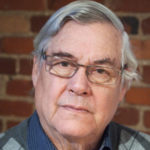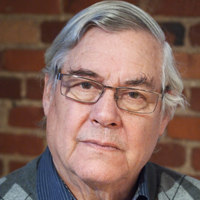
Can the Liberal Party renew its principles to enunciate policies that could lead to electoral success? Or, as Jim Travers asked in the Toronto Star, “what does it mean to be progressive in the 21st century?”
A remarkable three-day Montreal Liberal “thinkfest” called “Canada at 150” gathered together party activists, alongside big brains from business, academia and labour, and also social and environmental activists, to find answers to this question. It was, in effect, a three-day enumeration of what the “natural governing party” wasn’t doing. It was a brave, comprehensive and challenge-laden conference.
Canadians can be forgiven if virtually all they learned through media coverage of the event was the bleak outlook of former Bank of Canada chief David Dodge, who declared that we had to have an “adult debate” about what he predicted would be our inability to pay for skyrocketing health care costs, unless innovation and productivity improves drastically. This made headlines.
Then former Canadian diplomat Robert Fowler, an old friend of mine who was foreign policy adviser to Prime Ministers Pierre Trudeau and Brian Mulroney, and survived captivity in Niger, made the bald assertion that the Liberal Party was no longer the principled party he had known and had “lost its soul” in foreign and domestic policy. This was headline material the following Monday, as was Liberal Leader Michael Ignatieff’s media conference statement that he would freeze corporate tax cuts.
There was a lot of other “gotcha” journalism and egregious comment from the wandering and often bored media contingent, who were more interested in the few MPs who came, and in the reappearance of former prime ministers Jean Chrétien and Paul Martin, than in the speakers, whose policy ideas washed almost unnoticed over their heads. Perhaps the best was Paul Wells of Maclean’s magazine, who concluded from the decidedly left-leaning conference: “After this weekend, those big structural policy differences between the Liberals and NDP no longer exist.” He predicted a merger of the two parties!
The lack of journalistic curiosity was stunning, and the public is the poorer for it. Even the uniquely long time horizon — probing challenges to the public policy in 2017 — going far beyond the current election cycle — was overlooked. As was the question of who pulled together this impressive array of nonpartisan brainpower for a Liberal event. Turns out Eddy Goldenberg, Chrétien’s old chief of staff, had an important role, as did historian and Pierre Trudeau biographer John English and former University of Toronto president Rob Prichard. And what about the focus on the most difficult themes — from jobs, to health care, public pensions, the Arctic, and the creative economy?
It took the venerable economics writer David Crane to pull the conference themes together a few days later in the Toronto Star:
Canada’s social agenda…is hostage to a more innovative economy, he wrote… And as several speakers…pointed out, there remains a huge unfinished social agenda in Canada, with new needs emerging, including care for a growing number of frail and vulnerable elderly…Sherri Torjman, vicepresident of the Caledon Institute for Social Policy, noted that 50 per cent of employed Canadians are poor, that large numbers of Canadians will have inadequate pensions, that Canada is lagging badly in early childhood development and that there is a growing gap between wealthy and lowincome Canadians…Marie-France Raynault, dean of the department of social and preventative medicine at the University of Montreal, said one of the factors in rising health costs came from the fact that people living in poverty or low incomes, with inadequate housing, poor diets and insecure employment opportunities, tend to have poorer health.
Two other unreported themes fascinated me, first, education, which brought to mind how Pierre Trudeau had championed a role for the federal government in this provincial domain — an initiative built on by Jean Chrétien with his Canadian Foundation for Innovation. Lloyd Axworthy, former human resources minister, and now president of the University of Winnipeg, insisted we talk about a “national learning society” and build a “national data base and standards of education as the European Union does.”
Second, the innovation theme was given structure by the remarkable Tom Jenkins, who founded Waterloo’s Open Text, Canada’s largest software company, around the University of Waterloo and its cluster of world class high tech companies, including Research in Motion, creators of the BlackBerry. Waterloo “didn’t just happen,” he said. —˜Own the Podium’ is how we behave,” and it was based on the university’s co-op program and on giving intellectual property to and incubating fledgling companies. He said we should rigorously exploit what he called the “complete eco-system of digital opportunity.”
Finally, I was struck by a theme that was missing at the conference and in the media coverage: the role of swelling numbers of immigrants in a new economy. There was a suggestion of this in Rick Miner’s provocative talk on future labour force challenge, which he summarized as increasingly high unemployment, but worse, jobs without people to fill them — an astonishing 1.5 million by 2021. Then came the kicker. He claimed these would not be filled by immigration, since it takes 10 long years for immigrants to reach the rates of labour force participation that exist in the nonimmigrant population!
I think many of us have the impression that many well educated immigrants are entrepreneurs, innovators and actually create new companies and new jobs.
I believe there is a new immigrant establishment in Canada, exemplified by Sankar das Gupta of Electrovaya of Mississauga, who just signed to make lithium ion batteries for Chrysler, that will not just ensure new employment, but will make their mark as world players.
For the Liberal Party to not just consider better training in language and skills for immigrants, but also recognize and encourage entrepreneurial immigrants, would be a major way to reconnect with a core constituency — Canada’s multicultural communities.
During a panel on entrepreneurship and innovation, Linda Hassenfraz, CEO of the autoparts giant Linamar, and daughter of its Hungarian immigrant founder, said what needed to be said: “Immigrants are the best source of entrepreneurs and skilled labour.” Tom Jenkins agreed.
The fact that the conference itself, for the first time in Canadian politics, actually made and exploited its own “digital opportunity,” also went virtually unnoticed by the media. The involvement of party members and Canadians across the country was achieved by live streaming of the entire conference to over 70 riding events and on the Internet. This was interactive in an amazing way for those in the room in Montreal. Suddenly a tweet would come in with a question for a speaker or panellist, or a face would appear from afar by Skype on the giant screens.
Liberal Party President Alf Apps said it well: “There has never been a policy discussion in Canada that can claim the breadth or scope of participation that this conference demonstrated. It was a turning point in converting a party whose history has been one of hierarchically structured elites into a modern party of horizontal networks and grassroots engagement.”
With over 25,000 participants on the Internet site and “Canada 150” the most tweeted topic that late March weekend in Canada, it’s hard to argue with his assertion. It seems the Liberals have found out how to use social media effectively — finally. A really open party could be an essential part of its policy renewal.
In his opening remarks, Ignatieff signalled his party’s challenge bluntly when he said there was a rupture between the “political class and citizens.” He asked, “How do we rebuild a dialogue? A sense that what we care about can actually move politicians to act?” I’d say the dialogue has started — one that can continue to involve the kind of talent I met in Montreal. Maybe by 2017 we will have a new progressive Liberal policy structure that meets the profound economic and social challenges the media and most political parties (but not this magazine) so studiously ignore.
Photo: Shutterstock









